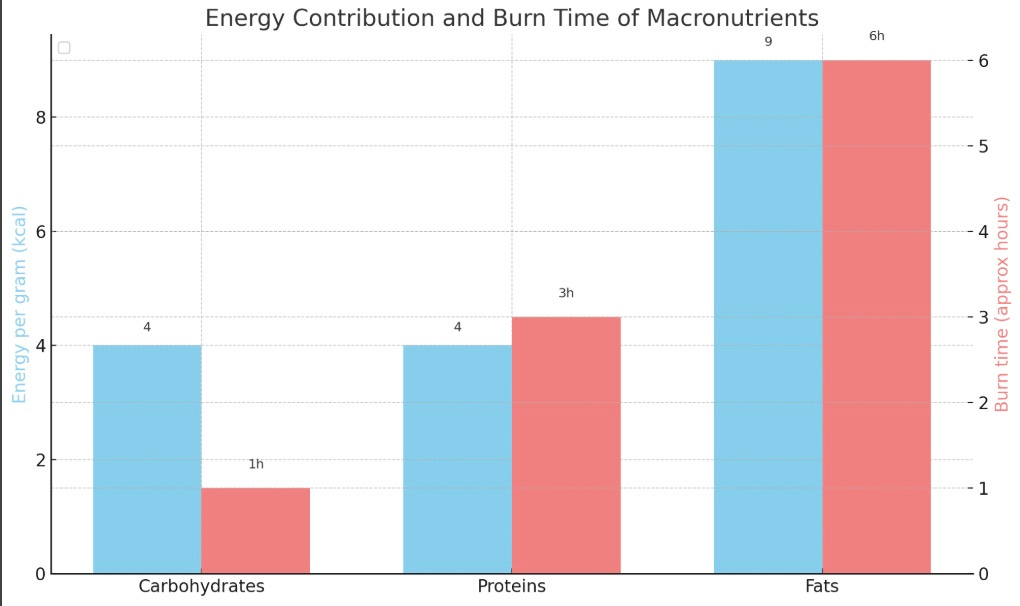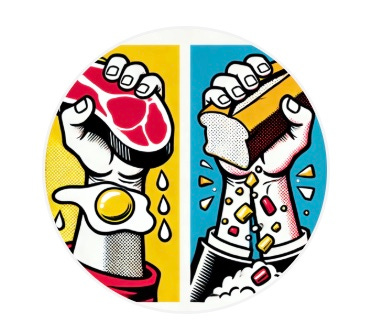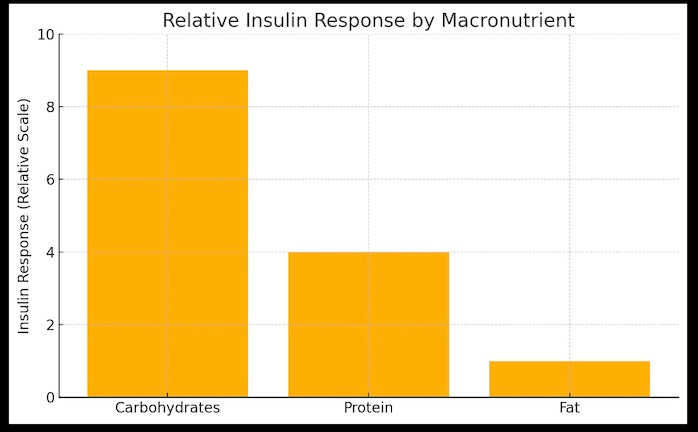What Do Carbohydrates Actually Build?
How your body builds with protein and fat — and what happens when carbs just tag along for the ride.
Subconscious Fat at 30,000 feet
I look at Mr. Skeptical sitting in front of me, drinking his sugared coffee. I take a sip of my buttered coffee and say, “Here’s a question almost no one asks: Protein builds muscle. Fat builds cells. But what do carbohydrates build?”
Mr. Skeptical ponders the question for a few moments. “Well, because you’re a caveman, you always talk about how protein is needed to build muscle. And you always say that animal fat should be eaten and is essential for building hormones, membranes, and brain tissue. These are structural materials. But carbohydrates?”
He ends by shrugging his shoulders, and I feel a warm sensation in my gut.
I add, “Carbohydrates, unlike protein and fat, don’t actually build you — they fuel you to build, or if there’s too much, which there often is, they build body fat.”
Mr. Skeptical moves closer to the edge of his chair, “So you’re saying my oatmeal breakfast builds nothing? I’ve been pouring maple syrup on ‘nothing’ for twenty years?”
“Carbs are fuel for motion, not materials for construction like fats and protein are.”
Subconscious Fat at 10,000 feet
Let’s zoom closer to the biochemistry.
Your body is a living architecture of proteins and fats. Every cell membrane is made from lipids; every enzyme, muscle fiber, and signaling molecule is protein-based. Even your hormones — testosterone, estrogen, cortisol — begin life as cholesterol, a fat-derived molecule.
When you eat protein, your body harvests amino acids to rebuild tissue, repair DNA, and produce neurotransmitters.
When you eat fat, it supplies essential fatty acids and cholesterol to form new membranes, myelin sheaths, and hormones.
Mr. Skeptical folds his arms. “Well, what about carbohydrates?”
“They enter the bloodstream as glucose. Glucose powers ATP production — the body’s quick fuel — but it isn’t incorporated into cell structure the way protein and fat are. The body uses glucose as a temporary energy source, not a raw material.”
“So, you’re saying carbs don’t build…anything?”
“If energy demand is low, the body converts excess glucose into glycogen (short-term storage in the liver and muscles) or fat (long-term storage). So in a sense, yes — carbohydrates build something: they build fat stores.”
Mr. Skeptical sighs and leans back into his chair. “So you’re saying carbs only exist to either be burned or be stored as belly insulation? That sounds like nutrition nihilism.”
“Not nihilism — just clarity. Carbs are a tool for movement, not maintenance. The problem is, most people eat as if they’re sprinting marathons while living like couch potatoes.”

Subconscious Fat at Eye-Level
This is where the human story gets interesting.
For most of human history, carbohydrates were seasonal and sparse.
We ate tubers, berries, fruits, and honey — brief surges of sugar that told the body: “Winter is coming. Store some fuel.”
That signal was useful when food was scarce. But in a modern world of constant abundance, that “store fuel” message never turns off. Every carb-heavy meal whispers the same evolutionary command:
“Make fat. Save it. Something might go wrong later.”
Meanwhile, fat and protein whisper something entirely different:
“Repair. Build. Thrive.”
The body listens to both, but modern diets are dominated by the first voice — the one that says “store.”
Mr. Skeptical adds, “So ancient humans used carbs to survive winters, and we use them to survive Netflix?”
”Right — same biology, different apocalypse.
“Even in the gym, the carbohydrate myth persists: ‘You need carbs to build muscle.”
But what builds muscle isn’t carbohydrate — it’s amino acids plus resistance training. Carbs may help by fueling the workout, but they’re not part of the construction material. They’re the gasoline that powers the crane, not the steel that becomes the bridge.”
Mr. Skeptical interrupts, “So if I ditch carbs entirely, I’ll just run on bacon and willpower?”
“Pretty much — with a little biochemistry to back you up. In ketosis, fat becomes your main fuel. Your body makes glucose as needed through gluconeogenesis, mostly from amino acids and glycerol. The system is self-sufficient — carbs are entirely optional.”
Practical Suggestions and Conclusions
Remember the builder hierarchy:
Protein = structure and repair
Fat = structure, energy, hormones, and the most efficient fuel source
Carbs = fuel (and if unused, fat storage)
Match fuel to output.
If you’re sedentary, you don’t need much glucose.
If you’re training hard or doing long endurance work, strategic carbs can help — but they’re tools, not necessities.
Taste as feedback.
When your body starts preferring fatty cuts, eggs, and meat over starches, that’s your innate intelligence recalibrating and adapting you to burn fat for fuel.
If fat starts tasting off, it’s likely oxidized or low quality — your senses are biochemical truth meters.
Mindset over macros.
Carbs aren’t evil; they’re contextual, and I only eat some typically before and after workouts.
But believing that you “need” them for survival is outdated conditioning — a leftover from decades of low-fat BS dogma and sugar economics.
Mr Skeptical shakes his head. “So carbs are like that friend who promises to help you move but just eats your snacks and leaves early?”
I smile. “That’s right — fun to have around once in a while, but don’t trust them with the heavy lifting.”
Be aware.
Other links related to this post:
When I was my Fattest
Who Was Ancel Keys?
The Dietitian Dilemma: Trustworthy Guides or Industry Pawns?PS Links on LinkedIn, Facebook, Instagram, X, and Notes. Full disclosure: ChatGPT was used to research and enhance this post.



